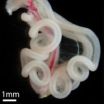(Press-News.org) BUFFALO, N.Y. -- American courts are significantly expanding the legal rights and privileges celebrities can command over others using their names or likenesses. And a University at Buffalo Law School professor is questioning whether these courts have gone too far.
Clearly, says UB Associate Professor of Law Mark Bartholomew, the courts have taken a more liberal interpretation when it comes to celebrities suing others for the use or even the implication of their names, images or voices. This special legal privilege -- known as the "right of publicity" -- has expanded to what Bartholomew calls "very subtle celebrity references," and beyond the use of specific celebrity names or images.
(A video interview with Bartholomew is available here: http://bit.ly/nWUjMd).
But does the special protection the American judicial system has advanced in the country's golden age of celebrity worship go too far? Bartholomew says there are basic rights of free speech at issue.
He makes his case in the article, "A Right is Born: Celebrity, Property and Postmodern Lawmaking," forthcoming in the Connecticut Law Review.
"Celebrity references are important tools for speech or personal expression. They help us make important communicative points," says Bartholomew, an expert on intellectual property law. "If I say someone has a John Wayne-type political style, you know what I am talking about.
"Celebrity names and images are also key items for personal development."
So the issue is a matter of balance, Bartholomew says. Recent decisions expanding the rights and lawsuit prowess of celebrities come at a cost.
"We probably all went through that stage in high school where we put pictures of celebrities up in our lockers or wore them on T-shirts," Bartholomew says. "Sometimes the celebrity is re-appropriated by audiences in an unforeseen way, like the gay community's embrace of Judy Garland. There is something disturbing about allowing the celebrity herself complete control over these important tools for communication and the ability to close off the ones she doesn't approve of."
The law is filled with easily recognized examples of this clash between celebrity rights and free speech, with elements and principles anyone from Super Bowl viewers to devotees of "OMG" and other celebrity websites would easily recognize, Bartholomew points out.
His favorite: the "infamous" Lindsay Lohan lawsuit.
"Last year, Lohan filed a lawsuit in New York against E*Trade, seeking $50 million in compensatory damages and $50 million in punitive damages for using her celebrity persona in a 2010 Super Bowl ad," Bartholomew says.
"Lohan's full name, picture and voice were not used. Instead, in the ad, an off-screen female voice asks the on-screen E*Trade baby through a video chat if 'that milkaholic Lindsay' was over when he didn't call her the night before. This prompts another baby, presumably 'Lindsay,' to step into the camera and ask 'milk-a what?'
"Lohan argued that she was famous on a single-name basis (like Oprah or Madonna) and also that 'milkaholic' was a reference to her troubled past and would allow viewers to identify her. People were upset with this case, angrily describing it in the blogosphere as completely frivolous. But E*Trade settled the case for an undisclosed financial sum, showing that E*Trade's lawyers at least thought the law gave Lohan a chance of winning her case."
Lohan is only the latest Hollywood celebrity whose name coincides with key court decisions on this relatively new legal phenomenon called the right of publicity, which Bartholomew defines as "an individual's right to the exclusive commercial use of his or her name and likeness."
A landmark decision involved an icon of Baby Boomer American celebrity, "Wheel of Fortune" game show hostess Vanna White.
"White sued Samsung Electronics for its advertisement featuring a robot dressed in a blond wig, gown and jewelry standing next to a letter board resembling the one used on 'Wheel of Fortune,'" says Bartholomew. "Samsung never mentioned White's actual name or used her photograph. Nevertheless, a court in California held that Samsung indeed did violate Vanna's right of publicity."
The White case is important for two reasons, according to Bartholomew. First, it provided a very generous legal precedent to the definition of "What is use of a celebrity?" Second, the decision gave what Bartholomew calls "short shrift" to First Amendment concerns.
Some states make an exception for "newsworthy" uses of a celebrity. Other states allow First Amendment rights to trump celebrity rights whenever the unauthorized user "transforms" or significantly changes the celebrity image.
"I think it is good to have these exceptions," Bartholomew says. "But they don't always go far enough. Artists might decide not to use a celebrity in their work because they don't have to the resources to challenge a lawsuit in court."
INFORMATION:
Since its founding in 1887, the University at Buffalo Law School – the State University of New York system's only law school – has established an excellent reputation and is widely regarded as a leader in legal education. Its cutting-edge curriculum provides both a strong theoretical foundation and the practical tools graduates need to succeed in a competitive marketplace, wherever they choose to practice. A special emphasis on interdisciplinary studies, public service and opportunities for hands-on clinical education makes UB Law unique among the nation's premier public law schools.
The University at Buffalo is a premier research-intensive public university, a flagship institution in the State University of New York system and its largest and most comprehensive campus. UB's more than 28,000 students pursue their academic interests through more than 300 undergraduate, graduate and professional degree programs. Founded in 1846, the University at Buffalo is a member of the Association of American Universities.
END
While singing the same songs as your neighbours may sound harmonious, research conducted at Queen's University Biological Station (QUBS) suggests that song-sharing amongst song sparrow populations is actually an aggressive behavior, akin to flinging insults back and forth.
"It's been hypothesized that repertoire size and song complexity is about the singer's ability to advertise their quality as a mate," says lead author Janet Lapierre, a visiting biologist from the University of Western Ontario (UWO). "Song-sharing, where birds sing a smaller number of their species' ...
Cambridge, Mass. - August 10, 2011 - Between conception and birth, the human gut grows more than two meters long, looping and coiling within the tiny abdomen. Within a given species, the developing vertebrate gut always loops into the same formation—however, until now, it has not been clear why.
Using a combination of experimental observations, biological and biophysical manipulations, theory, and computation, researchers at Harvard have shown that a "simple" balance of forces determines the form of the gut.
The finding may shed light on how the gut has been able to ...
ANN ARBOR, Mich.---A radical new approach to thwarting Internet censorship would essentially turn the whole web into a proxy server, making it virtually impossible for a censoring government to block individual sites.
The system is called Telex, and it is the brainchild of computer science researchers at the University of Michigan and the University of Waterloo in Canada. They will present it Aug. 12 at the USENIX Security Symposium in San Francisco.
"This has the potential to shift the arms race regarding censorship to be in favor of free and open communication," ...
AUGUSTA, Ga. – If you think teenagers prefer social media over the telephone, you may want to think again, at least when it comes to teens involved in research studies.
When 188 ninth-11th graders in four rural Georgia counties were asked how they preferred to be contacted about their participation in a Georgia Health Sciences University research study:
Nearly 54 percent preferred contact via cell and/or land line with a recorded message from a research assistant they know using a voice messaging call system
Nearly 24 percent preferred a personal call from the research ...
Quebec City, August 10, 2011 – Having pioneered the development of the first high-performance iron-based catalyst for fuel cells, researchers at INRS recently achieved a second major advance. They developed a new and improved iron-based catalyst capable of generating even more electric power in fuel cells for transportation applications. Previously, only platinum-based catalysts could produce similar performance.
The new research findings from the team of Professor Jean-Pol Dodelet were published in Nature Communications, a prestigious scientific journal part of the Nature ...
As we enter the era of data-intensive research and supercomputing, the world's top computer systems should not be ranked on calculation speed alone, according to Allan Snavely, associate director of the San Diego Supercomputer Center (SDSC) at the University of California, San Diego.
"I'd like to propose that we routinely compare machines using the metric of data motion capacity, or their ability to move data quickly," Snavely told attendees of the 'Get Ready for Gordon – Summer Institute' being held this week (August 8-11) at SDSC to familiarize potential users with ...
NEW YORK, August 10, 2011 - New research led by Derya Unutmaz, MD associate professor, the Departments of Pathology, Medicine, and Microbiology at NYU School of Medicine and Mark Sundrud, PhD, of Tempero Pharmaceuticals, Inc., has identified a novel sensory pathway that modulates the potency of Th17 cell responses. The new research is highlighted in the August 8th online edition of the Journal of Experimental Medicine. The study has found that when memory Th17 cells are exposed to a class of secreted proteins called gamma-c cytokines (IL-2, IL-15 or IL-7), they become armed ...
WASHINGTON, Aug. 10, 2011 — To the surprisingly inventive uses for banana peels which include polishing silverware, leather shoes, and the leaves of house plants, scientists have added purification of drinking water contaminated with potentially toxic metals. That's the topic of the latest episode in the American Chemical Society's (ACS) award-winning "Global Challenges/Chemistry Solutions" podcast series.
It actually points out that minced banana peel performs better than an array of other traditional purification materials.
Gustavo Castro and colleagues note in the ...
###
About Columbia Business School
Led by Dean Glenn Hubbard, the Russell L. Carson Professor of Finance and Economics, Columbia Business School is at the forefront of management education for a rapidly changing world. The school's cutting-edge curriculum bridges academic theory and practice, equipping students with an entrepreneurial mindset to recognize and capture opportunity in a competitive business environment. Beyond academic rigor and teaching excellence, the school offers programs that are designed to give students practical experience making decisions in ...
LOS ANGELES — August 10, 2011 — Do you run when you should stay? Are you afraid of all the wrong things? An enzyme deficiency might be to blame, reveals new research in mice by scientists at the University of Southern California.
In a paper appearing in the October 2011 issue of the International Journal of Neuropharmacology, USC researchers show that mice lacking a certain enzyme due to genetic mutation are unable to properly assess threat. The mice exhibited defensive behaviors (such as biting or tail rattling) in the presence of neutral stimuli, such as plastic bottles. ...


